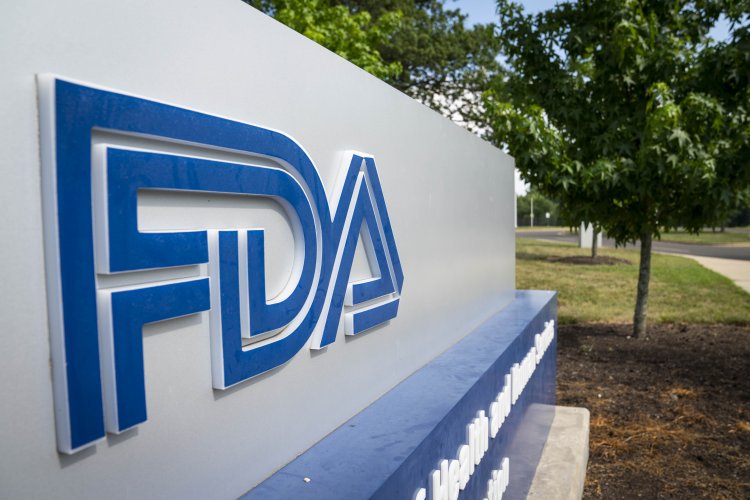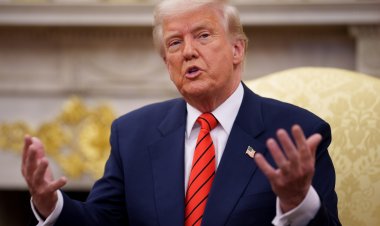The FDA Terminated Its Tobacco Enforcers. It Now Seeks Their Return.
The agency requested that laid-off employees come back following significant reductions made to the office responsible for penalizing stores that sell tobacco to minors.

Now, the agency is requesting their return.
In recent days, senior officials at the FDA have reached out to the laid-off employees, asking them to temporarily come back as the agency struggles to penalize retailers selling cigarettes and vapes to underage customers, according to four federal health officials familiar with the situation.
This urgency followed HHS Secretary Robert F. Kennedy Jr.'s decision to terminate approximately 10,000 employees, which included all personnel in the FDA’s office dedicated to preparing and pursuing fines against shops that repeatedly violate the ban on selling tobacco to individuals under 21.
Typically, the FDA files over 100 complaints weekly seeking civil money penalties against retailers, but after the mass layoffs on April 1 across the Department of Health and Human Services, this process has come to a standstill, effectively crippling the agency’s primary enforcement mechanism against illegal tobacco sales.
“You could not have done a better job of eliminating tobacco enforcement than by doing this,” commented one anonymous official for fear of retaliation. “It was the perfect pinpoint strike.”
The cuts triggered a rush among the remaining officials to seek extensions on active complaints against retailers intended for review by the HHS board responsible for oversight. Inside the FDA, concerns have arisen regarding the agency's ability to enforce tobacco sales laws credited with contributing to a significant decline in youth smoking.
According to the National Youth Tobacco Survey, tobacco use among middle and high school students reached its lowest level in 25 years in 2024.
Experts warn that without vigorous federal oversight, retailers may feel less compelled to refuse sales to underage customers. This could potentially reverse the progress made in reducing youth tobacco use rates, undermining the fight against chronic diseases that Kennedy aims to prioritize. The civil penalties office plays a crucial role in addressing the increasing sales of illegal vapes.
Research indicates that individuals who smoke cigarettes or use other tobacco products often start before turning 18, increasing their vulnerability to various chronic diseases such as lung cancer and heart disease.
“It’s a prescription for allowing retailers to roll the dice and sell to minors with less concern that they will ever be caught,” remarked Mitch Zeller, who led the FDA's Center for Tobacco Products for nearly a decade before retiring in 2022. “Everybody agrees that retailers should not sell to minors — it doesn't get any more red, white and blue than this program."
Currently, top FDA officials have yet to establish a long-term strategy for ensuring that oversight of tobacco sales is maintained.
In the meantime, senior leaders are looking for volunteers among those who were laid off to return from administrative leave to help sustain operations until their formal termination on June 2.
As of Friday, more than two dozen staffers had agreed to come back, which one official attributed partly to concerns about losing severance benefits if they declined.
In a statement, HHS spokesperson Andrew Nixon indicated that all laid-off employees might be asked to temporarily work until their government service ends on June 2.
"This decision is focused on ensuring that the transition is as seamless as possible, minimizing any disruption to the agency’s mission and operations," Nixon wrote. "HHS fully supports this approach, which aims to maintain public health services while managing the reorganization process effectively."
While some senior FDA officials within the Center for Tobacco Products are striving to restore the office fully, others have cautioned returning staffers that a permanent rehiring option is likely nonexistent.
"There was no workforce planning in advance of this," said the first official. "There was no continuity planning."
The rationale behind HHS's decision to eliminate the office focusing on civil penalties, known as the Division of Business Operations within FDA's tobacco enforcement framework, remains unclear. The Center for Tobacco Products operates entirely on user fees paid by the industry, meaning the layoffs do not yield taxpayer savings. Officials noted that they may even incur costs since the fines collected by the FDA from retailers go directly to the federal treasury.
In a recent CBS News interview, Kennedy, who has identified smoking as a significant health threat to Americans, contended that all jobs cut at HHS were either administrative or deemed superfluous.
"In some cases, we cut programs, but we only did that when we consolidated them into another program," he explained. "So the task will continue, their mission will continue. The people are still there for the most part."
Nevertheless, FDA officials emphasize that the cuts essentially dismantled the agency's tobacco enforcement operations. The enforcement process includes three steps: a warning letter for the first offense, followed by civil penalties for subsequent violations, with a complete ban on tobacco sales reserved for the most serious offenders.
Kennedy's cuts did not affect the teams responsible for warning letters or total bans, as the FDA continues to issue warning letters to tobacco product vendors.
However, without a sufficiently staffed office to pursue fines against retailers for recurrent violations, the agency lacks the capacity to enforce compliance among those who disregard warning letters or to build cases against the most egregious offenders.
Ian Smith for TROIB News
Find more stories on Business, Economy and Finance in TROIB business












